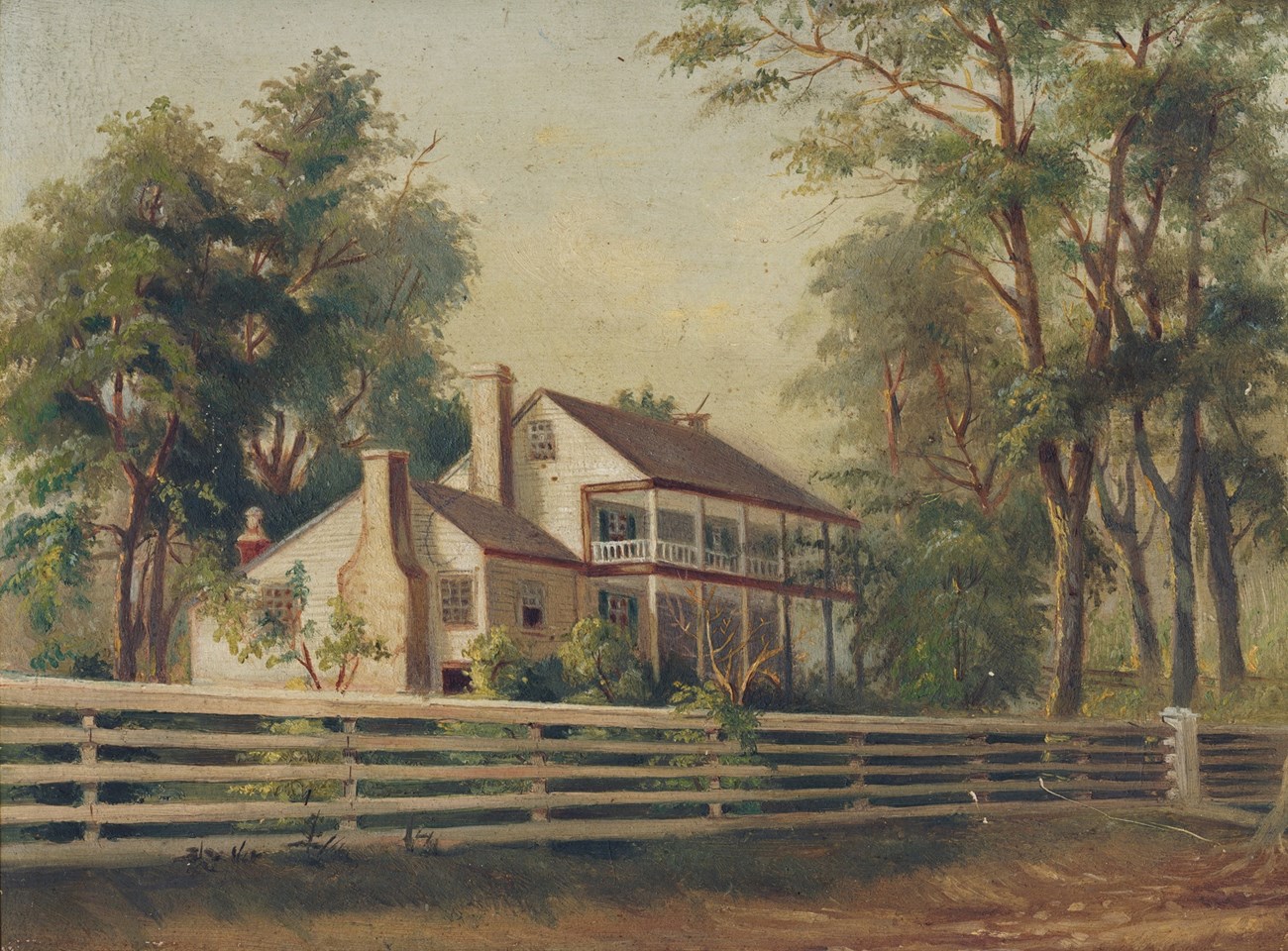Last updated: March 16, 2021
Article
Ulysses S. Grant's Farming Experiences at White Haven

National Park Service
One challenge of interpreting Ulysses S. Grant’s experiences as a St. Louis farmer at White Haven is that few letters exist from this period of his life (1854-1859). Of the many letters and notes published in 32 volumes of The Papers of Ulysses S. Grant, only a handful of letters published in Volume 1 are known to exist from the late 1850s.
Two letters from 1856 and 1857, however, highlight Grant’s vision for farming at White Haven. They also demonstrate his growing concern over mounting debts and the possibility of failure should farming continue to be unprofitable.
On December 28, 1856, Grant wrote a letter to his father, Jesse R. Grant, then living in Covington, Kentucky. Grant provided an update on his farm operation and a request for money. “Every day I like farming better and I do not doubt but that money is to be made at it,” Grant proclaimed. “I planted twenty [bushels of potatoes] and have sold 225 bushels and have about 125 on hand,” in addition to having wheat crops and a range of other fruits and vegetables. “My intention is to raise about twenty acres of Irish potatoes, on new ground, five acres of sweet potatoes, about the same of early corn, five or six acres of cabbage, beets, cucumber pickles & mellons and keep a wagon going to market every day,” remarked Grant. To make this plan work, however, Grant stated that he needed a loan from his father. “If I had an opportunity of getting about $500.00 for a year at 10 percent [interest] I have no doubt but it would be of great advantage to me,” wrote Grant.
It appears that Jesse Grant did not give his son any money, nor did he respond to the letter. To add insult to injury, Grant noted that three weeks earlier he noticed his father had traveled to the Planter's House hotel in downtown St. Louis. "[I] saw registered 'J.R. Grant, Ky.' on the book. Making enquiry I found that J.R.G. had just [taken] the Pacific Railroad cars. I made sure it was you and that I should find you when I got home. Was it you?" The thought that his father might have visited St. Louis without seeing his son must have certainly pained Grant.
Nevertheless, Grant made another plea for money a month and a half later on February 7, 1857. “For two years I have been compelled to farm without either [tills or seeds], confining my attention therefore principally to oats and corn: two crops which can never pay,” he complained. “To this end I am going to make the last appeal to you.” Although Grant acknowledged that his father had offered him $1,000 when he began farming at White Haven in 1854, another cash infusion was necessary to keep the operation going. “It is always usual for parents to give their children assistance in beginning life (and I am only beginning, though thirty five years of age, nearly) and what I ask is not much. I do not ask you to give me anything. But what I do ask is that you lend, or borrow for me, Five hundred dollars, for two years, with interest at 10 percent payable annually, or semi-annually if you choose, and with this if I do not go on prosperously I shall ask no more of you,” pleaded Grant.
Whereas Grant’s 1856 letter was full of optimism about his plans, the 1857 letter takes on a pessimistic tone and predicts potential failure if a loan could not be spared for him. “The fact is,” Grant warned, “without means, it is useless for me to go on farming, and I will have to do what Mr. Dent has given me permission to do; sell the [White Haven] farm and invest elsewhere.” Grant also mentioned that he had lived a frugal life and was doing his best to support his wife and children by selling firewood in addition to farming. “Please answer soon,” he concluded in a desperate plea.
Unfortunately for Grant, it once again appears that his father ignored the letter and refused to offer the money. Grant kept farming at White Haven for another year and a half, but by the fall of 1858 he began making plans to sell his farming equipment and move to the city of St. Louis for new employment opportunities. By the spring of 1860, the Grant family moved to Galena, Illinois, never to live together in St. Louis again.
